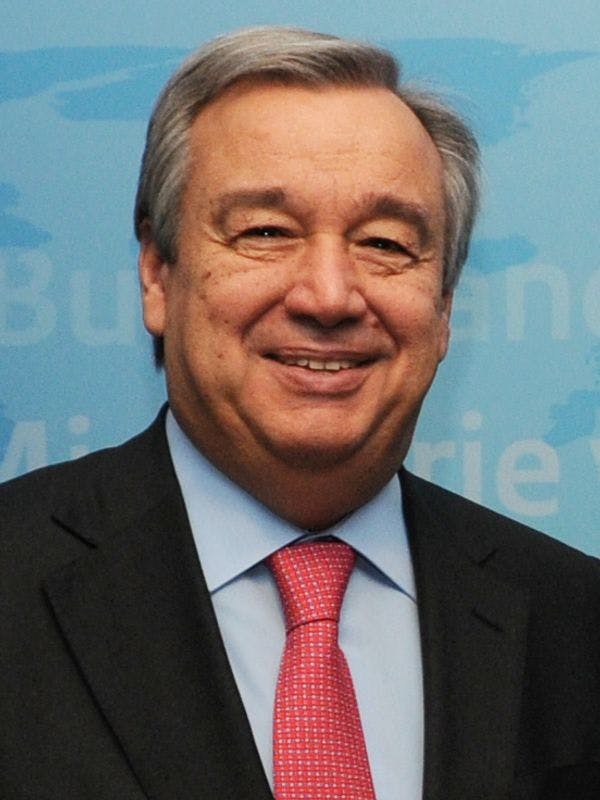Wikipedia Commons - Bij Timmermans
UN Secretary-General's remarks to the 27th session of the Commission on Crime Prevention and Criminal Justice
It is a great pleasure to be here in Vienna for the first time as Secretary-General.
I thank the United Nations staff based here, the representatives of Member States, civil society and all our partners, for your work on some of the most challenging problems the international community faces today: transnational crime, human trafficking, corruption, drug policy, cybercrime.
My overriding priorities since taking office are preventing conflicts and crises, and mobilizing efforts to implement the 2030 Agenda for Sustainable Development. The UN Office on Drugs and Crime, and this Commission, have a crucial role to play.
I would like to say a few words about your work, in the context of our global efforts.
I welcome the three resolutions on human trafficking tabled at this Commission. This heinous crime is flourishing, as a result of protracted conflicts, growing inequality and the absence of an organized international response to migration.
The results are all around us: appalling deaths on the high seas and across deserts; forced labour and sexual servitude; the recruitment of child soldiers and many other forms of exploitation and abuse.
But these are just the visible signs of vast, cross-border criminal networks. We need to tackle these networks in their entirety, from recruiters to ship captains and brothel owners, all the way to the gang bosses who make fortunes from human misery.
This will require much stronger cooperation among Member States, based on the UN Convention Against Transnational Organized Crime and its Protocol on human trafficking.
The UN Security Council is targeting the financing of human traffickers.
The Global Compact on Safe, Orderly and Regular Migration that will be adopted later this year should be another milestone.
When we discuss crime prevention and criminal justice, we should always remember that laws work by compliance rather than coercion. It is the public’s perception of what is fair and just that best guarantees the effectiveness of law and its enforcement efforts.
This brings me to the top of the list of contemporary criminal justice issues: the fight against corruption.
I attach great importance to your work against this crime, which denies people opportunities, undermines economic growth and the rule of law, and damages people’s faith in governments.
Thanks to 24-hour news and social media, corruption is increasingly visible. It is rejected and repudiated by ordinary people all over the world, who want leaders and institutions that demonstrate transparency and accountability.
Combating corruption requires a culture of integrity, led from the top.
The UN Convention against Corruption, agreed fifteen years ago and adopted by 184 parties, is delivering real change. Legal institutions around the world are taking action.
I commend UNODC’s work in this area – but much more needs to be done. I urge you to strengthen the UN’s support to Member States in tackling corruption, strengthening good governance and the rule of law.
The United Nations Office on Drugs and Crime also has a key role to play in addressing the global menace of drug abuse and trafficking.
When I was Prime Minister of Portugal, I used the flexibility afforded by the three international drug-control conventions to introduce non-criminal, health-based responses to the possession of drugs for personal use.
We increased the resources allocated to prevention, treatment and social reintegration programmes, and we retained a very strict policy on the criminalization of drug trafficking. The policy was hailed as a major success. HIV rates among injecting drug users fell dramatically; drug use rates also fell by almost fifty per cent. Portugal now has one of the lowest death rates for drug use in Europe.
So I strongly endorse a balanced, comprehensive approach to drug policy, giving full weight to prevention and treatment, in line with progress made at the United Nations General Assembly Special Session on the World Drug Problem in 2016. I hope the next Ministerial meeting will build on these agreements.
(...)
Regions
Related Profiles
- United Nations
